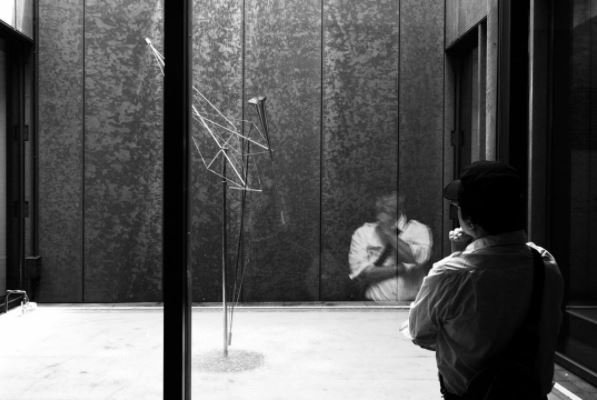[:en]The Productivity of Doing Nothing[:ja]何もしないことによる生産性の向上[:]

[:en] The best way to achieve rapid progress in your profession is to regularly schedule doing nothing. Management is primarily brain work as opposed to hands-on manual labor. The higher the level of the manager, the more significant the brain work becomes. We advance our businesses by the power of our ideas and innovation. One good idea can eliminate countless fruitless meetings, unnecessarily lengthy processes, rapid growth in profit, or an improved capability of staff. Ideas are not the product of brute force labor, but rather emptying of one’s mind.
[:en]The Senior-Level Salesman Who Won’t Change[:ja]変革を拒むシニアレベルの営業スタッフ[:]

[:en] For many companies in Japan, markets and strategic priorities have changed faster than the way senior sales staff do things. The target customers, industries, ways of selling and delivering value must change if the company is to thrive. Yet so many CEOs of companies in Japan lament about senior salespeople who cling to the past. This includes Japanese leaders of Japanese companies, not just non-Japanese leaders of non-Japanese companies.
[:en]Why doesn’t my leadership team bring new ideas to me? The “wa” of Confrontation[:ja]対立においての和[:]
[:en] CEOs often ask me this question, as most would like their team to propose ideas and alternatives to them.In Japanese culture, proposing an idea can be viewed as suggesting you know better than your boss, and that you disagree with his or her point of view. At best this can be interpreted as impertinence, at worst as insubordination.
[:en]The Fallacy of Monetary Incentives[:ja]金銭によるインセンティブに効果がない理由[:]
[:en] Most leaders view monetary incentives as the most important driver of performance, whereas most employees view it as the least important. Monetary incentives reduce performance to an economic transaction—an offer for a price—which he or she may accept or walk away from.
[:en]You Cultivate Leaders, Not Train them[:ja]リーダーとは育てるものであって、訓練するものではない[:]
[:en] You improve leadership capability through coaching and mentoring leaders in their current leadership roles, whether heads of small teams or of global organizations. Learning is applied in vivo, and feedback immediate.
[:en]Takeaways from lunch with Jim Thompson, Billion Dollar Entrepreneur[:ja]ビリオネア起業家、ジム・トンプソン氏との昼食会で学んだこと[:]

[:en] On February 5th, I organized a lunch with Jim Thompson, CEO and founder of Crown Worldwide. The lunch, hosted by the American Chamber of Commerce in Japan, was fully booked with twenty people in attendance. You may not have heard of Crown Worldwide, but they are one of the largest logistics, international relocation and document storage companies in the world. You probably have seen their trucks, present in many cities around the globe. They bright red sporting a yellow crown.
[:en]Takeaways from my Conversation with Steve Dacus, CEO of Seiyu and Walmart Japan[:ja]西友・ウォルマートジャパンの最高経営責任者、スティーブ・デイカス氏とお会いして学んだこと[:]
[:en] My February 3rd Conversation With Steve Dacus event, jointly hosted by the American Chamber of Commerce in Japan and the Australia New Zealand Chamber of Commerce in Japan was fully booked with over seventy people in attendance. As with all my “Conversation With…”I leave ample time for the audience to ask questions of the guest directly, and like always, this audience participated with zeal.
[:en]The Art of the Stomach and Pitfalls in Communicating with the Japanese[:ja]腹芸、そして日本人とのコミュニケーションにおける落とし穴について[:]
[:en] Haragei (腹芸)in Japanese is “the art of the stomach.” Many Japanese people have not heard of this expression, but all Japanese are surely familiar with what it represents. Haragei is the art of understanding what someone means in conversation without his or her having to say it aloud. Haragei also means conveying meaning without explicitly saying it.
[:en]If you had a magic third arrow, what would you use it on?[:ja]あなたなら、魔法の第三の矢を何に使いますか?[:]
[:en] I ask that question to CEOs I meet. All have clear targets, from relaxing of import regulations to freeing up the labor market–a full quiver. Abe’s problem is not a lack of third arrows, but a lack of a third bow to launch them. Expectations may be low, but what if Mr. Abe succeeds? Be careful what you wish for. When that third arrow finds its mark, what will be changed in your economy, not just your business. Are you ready?

